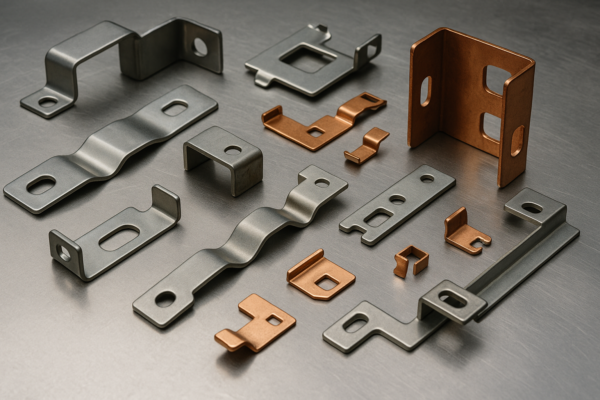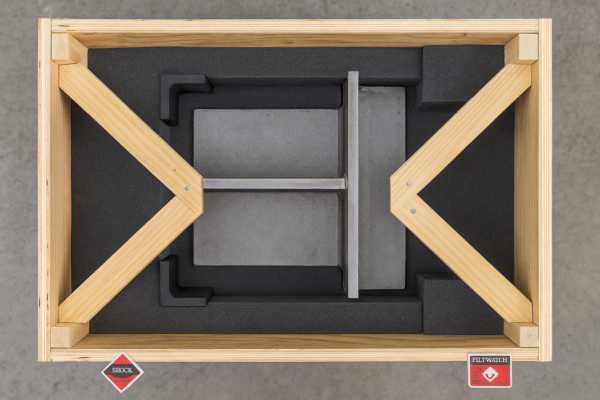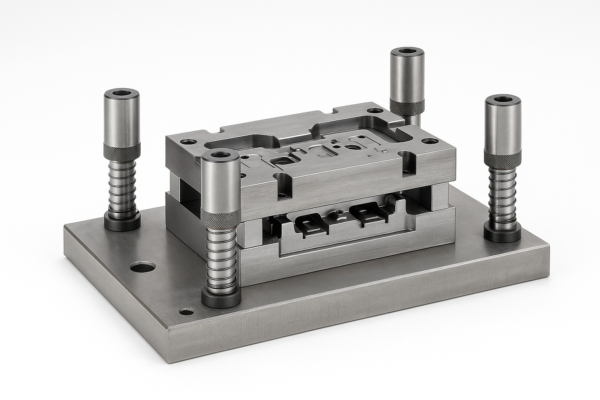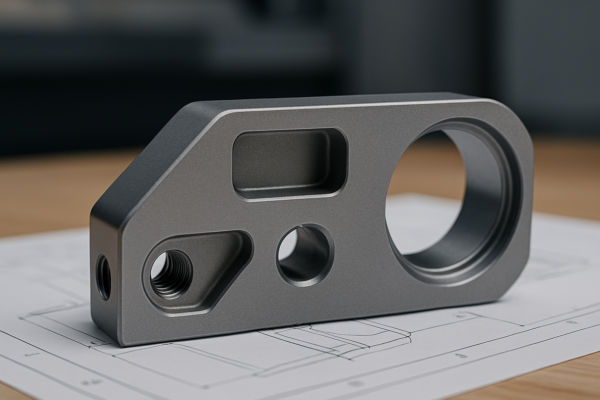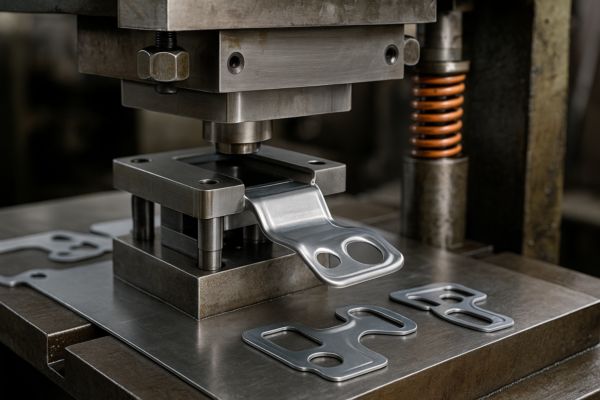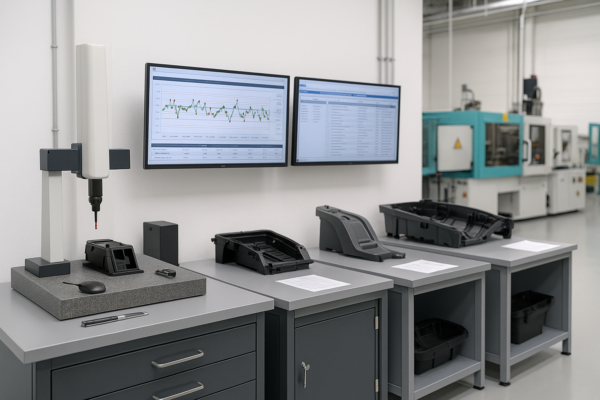What is the Cheapest Metal to Cast With?
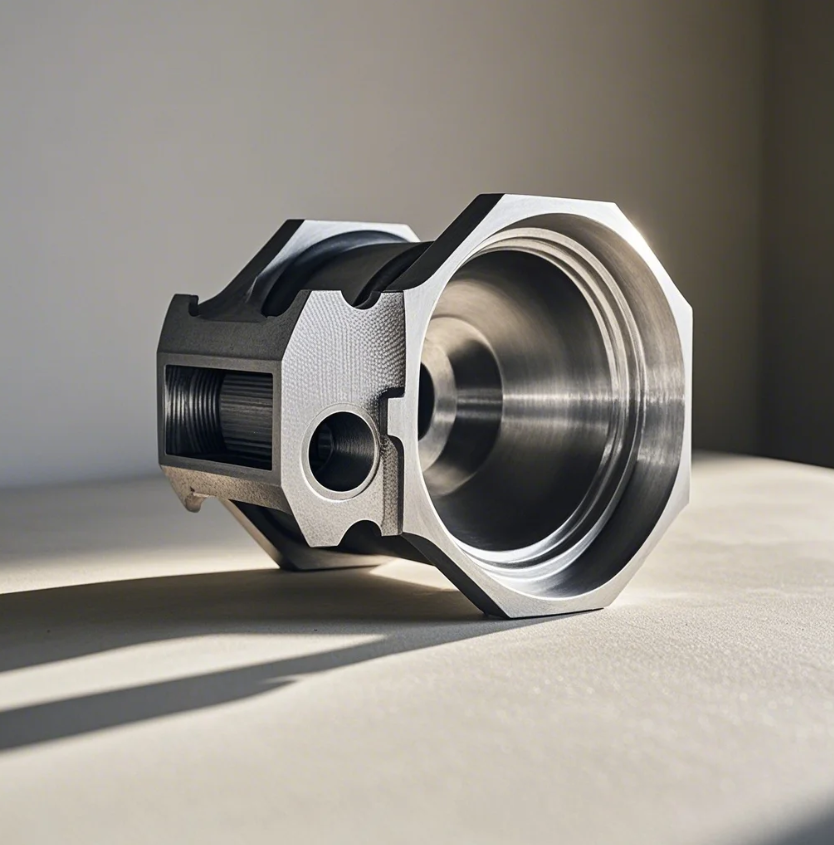
Casting metals can be an expensive process, especially for beginners and small-scale manufacturers. However, the cost of materials can vary significantly depending on the type of metal chosen. If you’re looking to keep costs down while learning the casting process or working on small projects, it’s important to choose the right metal. In this guide, we will explore some of the cheapest metals to cast with, as well as the factors that influence casting costs.
Choosing the most cost-effective metal for casting helps reduce overall project expenses. Learn about affordable casting metals and their advantages.
Selecting the right metal for your casting needs can significantly impact your budget. Read on to discover the most cost-efficient options.
What is the cheapest form of casting?
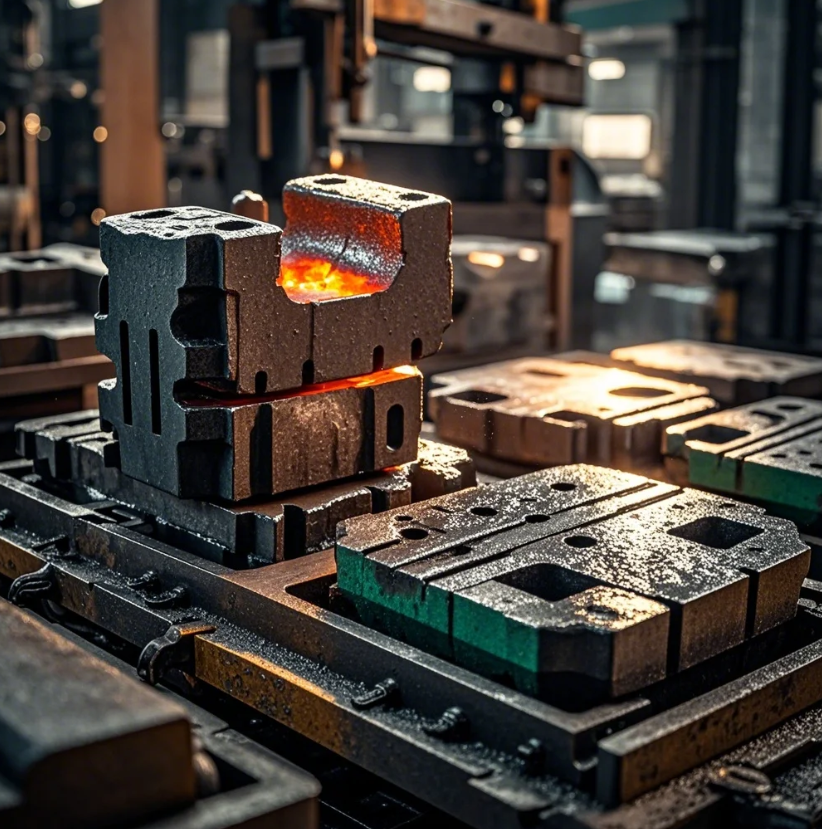
The cost of casting depends not only on the metal you choose but also on the casting process. The simplest and most affordable casting method is sand casting, which can be used with a wide range of metals. Sand casting involves creating a mold from a mixture of sand, clay, and water, which is then filled with molten metal. This process is cheap because it uses inexpensive materials, and it can be reused multiple times.
Cheap Casting Methods:
- Sand Casting: Ideal for metals like aluminum, zinc, and brass. It’s the most cost-effective method for both small and large quantities.
- Investment Casting: Although it provides better detail, investment casting is more expensive due to the materials and process involved. It’s often used for more complex or high-quality parts.
- Die-Casting: Best for metals like aluminum and zinc. While the initial cost of creating a die mold is high, it’s very cost-effective for large production runs.
When focusing on the cheapest metal to cast with, sand casting offers the most affordable option because of its low-cost materials and the flexibility it offers for various metals.
Snippet paragraph: Sand casting is the cheapest method, using simple materials for a cost-effective way to create metal parts.
What is the easiest metal to cast?
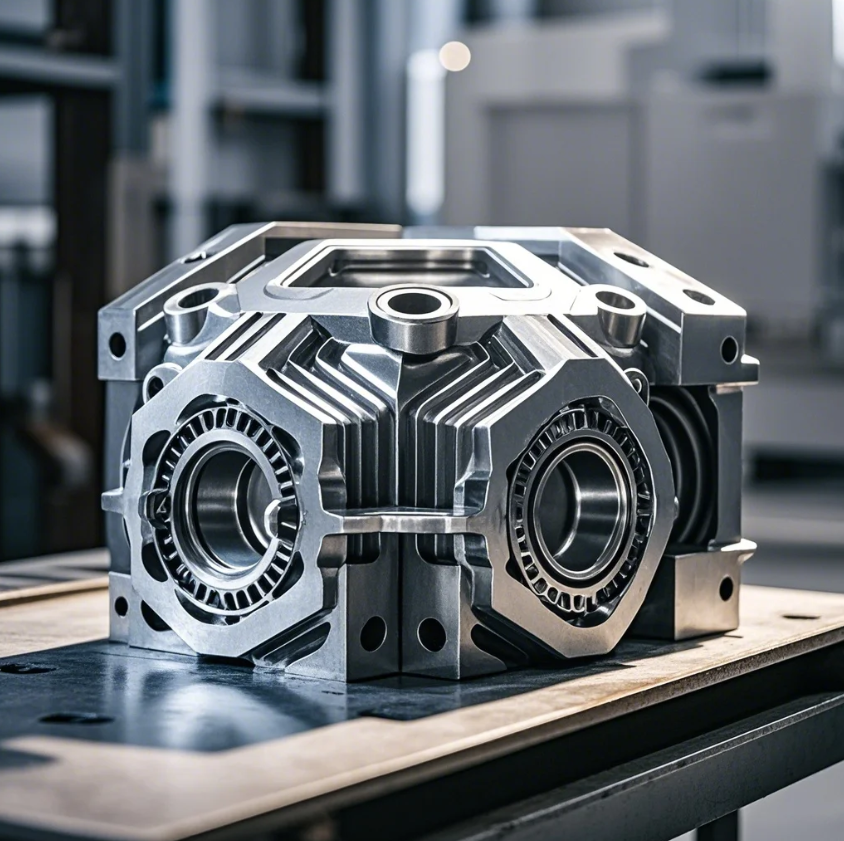
Some metals are easier to cast than others, primarily due to their lower melting points and fluidity. When considering which metal is the easiest to cast, it’s important to look at factors like ease of melting, the availability of materials, and the type of casting process involved.
Easiest Metals to Cast:
- Aluminum: Aluminum has a low melting point (around 660°C or 1220°F), making it one of the easiest metals to work with for casting. It is lightweight, easy to melt, and widely used in both hobbyist and industrial casting projects.
- Zinc: Zinc has a melting point of approximately 419°C (786°F), making it another metal that is very easy to melt and cast. It’s often used in die-casting and is popular in the production of small parts.
- Tin: Tin has an even lower melting point (232°C or 450°F), making it the easiest metal to cast for beginners. However, it’s not as widely used for mass production, but it’s useful for smaller, detailed projects and for creating alloys like bronze.
Snippet paragraph: Metals like aluminum, zinc, and tin are the easiest to cast due to their low melting points and simplicity in handling.
Which metal is very cheap?
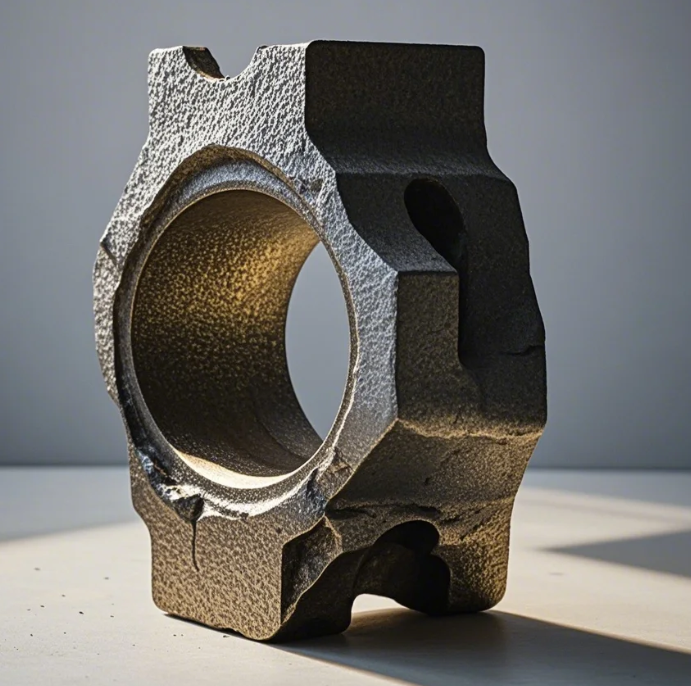
When considering which metal is very cheap, it’s important to evaluate both the material cost and the ease of casting. The following metals are known for being particularly inexpensive in both material cost and casting:
Cheap Metals for Casting:
- Aluminum: Aluminum is one of the cheapest metals available for casting. It is widely used across industries due to its affordability, low melting point, and excellent casting properties. Aluminum is typically much cheaper than metals like copper, bronze, or stainless steel.
- Zinc: Zinc is also an affordable metal, with a relatively low price compared to other metals. It is commonly used in die-casting for making small parts and is especially useful for mass production due to its low cost.
- Lead: Lead is inexpensive, though it should be handled with care due to health risks associated with lead fumes. Despite its low cost, lead is not commonly used in industries today due to its toxicity.
Cost Comparison:
| Metal | Price (per kilogram) | Melting Point (°C) | Common Uses |
|---|---|---|---|
| Aluminum | Low | 660 | Automotive, aerospace, cookware |
| Zinc | Very Low | 419 | Die-casting, small parts |
| Lead | Low | 327 | Batteries, casting (with caution) |
| Copper | High | 1085 | Electrical wiring, industrial use |
Snippet paragraph: Aluminum and zinc are among the cheapest metals for casting due to their low material costs and ease of handling.
What is the cheapest material metal?
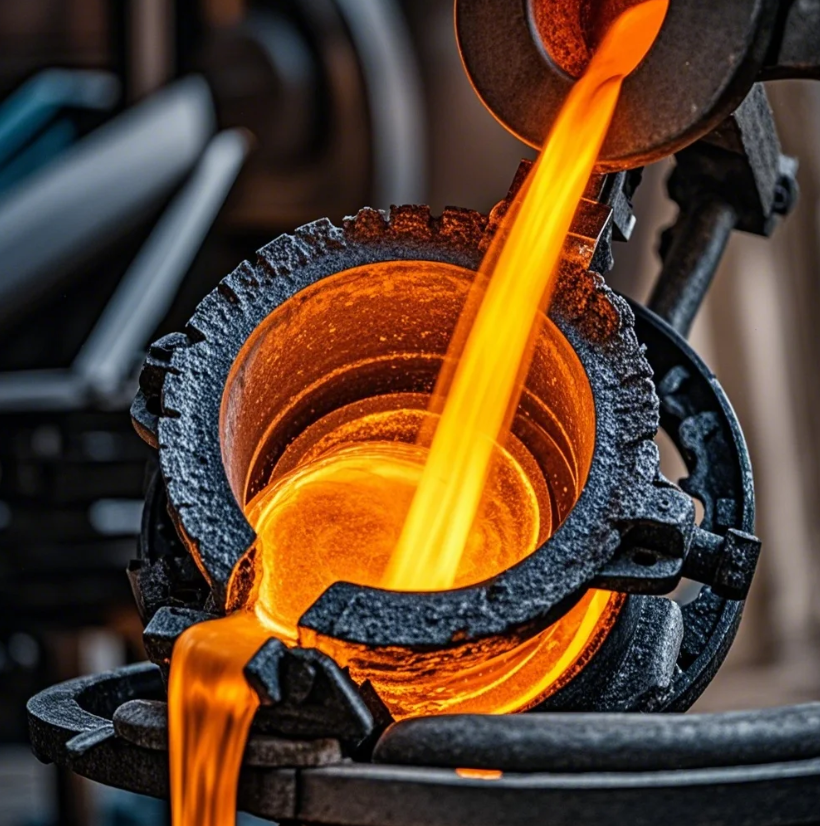
When looking for the cheapest material for casting, aluminum is often the best option. Aluminum is affordable, widely available, and has excellent properties for casting, such as a relatively low melting point and good fluidity.
Affordable Metals for Casting:
- Aluminum: As one of the most affordable metals, aluminum is often the first choice for both amateur and professional casters. It is cost-effective for both small and large-scale projects.
- Zinc: Zinc is a cheap, versatile metal used in a variety of applications, from small intricate parts to large industrial components. It is easy to cast and inexpensive.
- Steel (Carbon Steel): Carbon steel is cheaper than stainless steel and is used in casting projects that require strength and durability. However, it has a higher melting point and can be more challenging to cast compared to aluminum or zinc.
Cost-Effective Casting Materials:
| Material | Price (per kilogram) | Common Uses |
|---|---|---|
| Aluminum | Low | Automotive, aerospace, cookware |
| Zinc | Very Low | Die-casting, small parts, decorative items |
| Carbon Steel | Low to Moderate | Structural components, heavy machinery parts |
Snippet paragraph: Aluminum and zinc are the cheapest materials for metal casting, offering affordability and ease of use for a variety of applications.
Conclusion
When considering the cheapest metal to cast with, aluminum and zinc are the top contenders due to their low material cost, ease of handling, and relatively low melting points. Sand casting is also the most affordable method for beginners and small-scale projects. These metals provide an excellent starting point for anyone looking to cast metal parts on a budget.
If you are looking for high-quality, cost-effective casting solutions, reach out to Prime today. With over 20 years of experience in metal casting, we can provide expert advice, rapid delivery, and high-quality custom solutions tailored to your needs.

